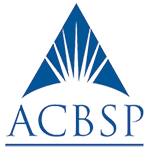Master of Science in Accounting and Financial Analysis, MAFA
Purpose
The MAFA program integrates the areas of accounting and finance. The program is rigorous with broad coverage in financial accounting, finance, information technology, management accounting, taxation, international business, and investment analysis. All students should enroll in Accounting and Finance Analysis Seminar I during their first fall semester in the MAFA program. Accounting and Finance Analysis Seminar II should be taken near the end of the program. The MAFA program will be attractive to individuals employed or interested in becoming employed as controllers, financial managers, public accountants, financial analysts, and financial planners. It is expected that applicants will have an undergraduate background in either accounting or finance.
The purpose of the program is to education and train accounting and finance professionals who
- Use an analytical approach in problem solving and decision making.
- Communicate effectively;
- Have current, relevant, integrated knowledge in accounting, finance and business;
- Understand the economic, social, political, legal, and technological environment of business in a global context;
- Are prepared to be dynamic leaders and effective team members;
- Are professional in their attitude and approach to a career; and
- Appreciate the civic, social, and ethical responsibilities of business organizations and business professionals.
Accreditation

The Master of Science in Accounting and Financial Analysis program offered through the College of Business and Technology is accredited by the Accreditation Council for Business Schools and Programs (ACBSP).
Founded in 1988, the Accreditation Council for Business Schools and Programs (ACBSP)
is a global business education accrediting body and the first organization to offer
accreditation to all levels of collegiate business educational degree programs from
associate to doctoral.
ACBSP ignites a standard of excellence with an accreditation process based on the Baldrige Education Criteria for Performance Excellence. By evaluating aspects of leadership, strategic planning, relationships with stakeholders, quality of academic programs, faculty credentials, and educational support, ACBSP assesses whether or not business programs offer a rigorous educational experience and commitment to continuous quality improvement.
Student Learning Outcomes
- apply capital budgeting techniques to make a sound investment decision.
- apply the capital structure theories and financial concepts when making financial decisions.
- apply financial instruments in investments and hedging.
- understand the balance sheet elements.
- understand income statement elements.
- understand reporting of cash flows.
Accounting and Financial Analysis, M.S. - 30 hrs plus capstone experience
Required MAFA Courses - 15 hours
ACFN 5003 includes focused attention on program orientation and should be taken as early in the program as possible. ACFN 5363 requires substantial progress toward completion of the capstone experience and should be taken at or near the end of the program. Other program courses may be taken in any sequence.
MAFA Electives - 15 hours
Select 15 hours from the following:
- ACFN 5103 - Accounting Theory Seminar
- ACFN 5173 - Advanced Cost Accounting and Decision Theory
- ACFN 5193 - Taxation and Business Strategy
- ACFN 5233 - Accounting and Financial Information Systems
- ACFN 5243 - Auditing and Attestation
- ACFN 5263 - Financial Statement Analysis
- ACFN 5293 - Investment Analysis and Portfolio Theory
- ACFN 5303 - Derivative Securities: Analysis and Accounting
- ACFN 5313 - Fixed Income Analysis
- ACFN 5403 - Oil and Gas Accounting
- ACFN 5610 - Special Topics in Accounting and Financial Analysis
- BADM 5203 - Business Analytics Survey
- MBA 5333 - Marketing Strategy
- MBA 5523 - Business Law
Capstone Experience
The MAFA program requires a learning experience beyond the specified minimum number of courses. The capstone experience can be satisfied by making an acceptable score on a professional examination to receive the Certified Public Accountant license, Certified Management Accountant designation, or Chartered Financial Analyst® designation or other equivalent certification or specialist designation.
The capstone experience can also be satisfied by completing a thesis or 6 hours of additional coursework. Generally, the capstone experience must be approved by the MAFA Program Coordinator and the Dean of the Graduate College. A capstone experience not involving an approved professional examination will also require the approval of an advisory committee, consisting of three graduate business faculty members, at least two of whom must be faculty who teach in the MAFA program.
Students who do not complete the capstone experience by the end of program coursework must enroll in ACFN 5711 under the MAFA Program Coordinator until the capstone experience is completed. Evidence of completing the capstone experience must be submitted to the Dean of the Graduate College at least thirty days before conferral of the degree.
Accelerated B.B.A. Accounting to M.S. Accounting and Financial Analysis
Note: Please refer to Accelerated Bachelor’s to Master’s Degree Program for complete information concerning the Accelerated Degree Program. Refer to the current Undergraduate Catalog for bachelor’s degree requirements.
IMPORTANT:
- Students admitted to the Accelerated B.B.A. Accounting to M.S. Accounting and Financial Analysis degree program will complete up to 12 hours of graduate level credit to apply toward both the undergraduate and graduate degrees.
- A minimum grade of C is required for all 5000 level graduate courses.
- Students who do not follow the approved degree plan may become ineligible to continue in the accelerated degree program.
- Prior to completing the undergraduate degree, if the undergraduate GPA, graduate GPA and/or overall GPA fall below a 3.00, the student becomes ineligible to continue in the ADP.
- Students may withdraw from an approved accelerated degree pathway. Graduate credit hours completed prior to the student withdrawing or becoming ineligible to continue in the ADP apply toward the undergraduate degree only.
ADP Paired Courses
| Accounting Elective | ACFN 5003 - Accounting and Finance Analysis Seminar I |
| Accounting Elective | ACFN 5143 - Quantitative Methods in Accounting and Financial Analysis |
| Up to 6 hours of Free Electives (Optional) | ACFN - Approved ACFN electives |
Credential Requirements
To be professionally credentialed, students must achieve an acceptable score on a professional examination to receive the Certified Public Accountant license, Certified Management Accountant designation, or Chartered Financial Analyst® designation or other equivalent certification or specialist designation.
Degree Available At
- Broken Arrow
- Virtual Classroom
Starting Your NSU Journey?
Make your transition to NSU as smooth and seamless as possible.
Visit our Graduate College Checklist for more information.
Career Services
What Can I Do With A Master's Degree in Accounting and Finance?
- Auditor
- Tax Accountant
- Cost Accountant
- Systems
- Corporate Accountant
- Consultant
Program Chair:

Did You Know?
Those with an accounting degree can fill many corporate jobs and accounting provides a strong foundation for advancement within an organization.
Program Requirements
- Resume / Vitae
- 2 References
- Undergraduate GPA of 3.00. GMAT score of 450 if GPA is lower than 3.00
Application Deadline
- Open Year Round
*Fees include: facility fee, student activity fee, infrastructure fee, cultural/scholastic lecturer fee, student ID fee, technology services fee and remedial course fee, if applicable. NSU courses taught at off campus locations or online might have additional fees assessed. These totals are tuition and fee estimations per program based on the current catalog year. Books, supplies and some fees may not be included.


